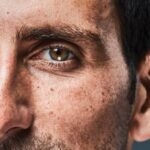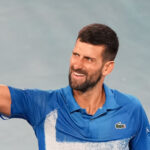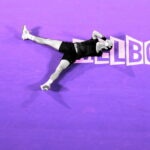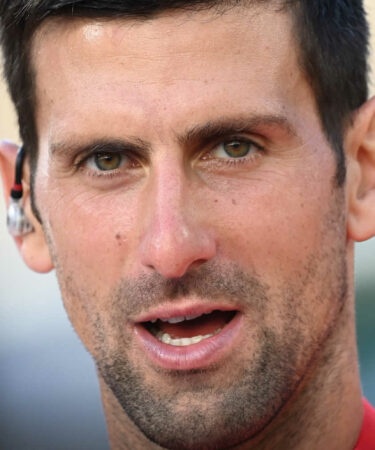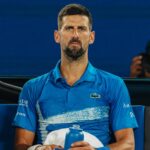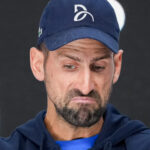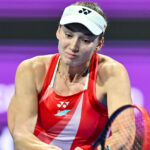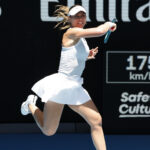“How will this help my tennis?”: Chat about Novak Djokovic with biographer Mark Hodgkinson
Tennis Majors sat down with Mark Hodgkinson, author of the recently released book, ‘Searching for Novak’. Here are the highlights from our conversation on the grounds of Wimbledon, as the Serbian plays one of the most important matches of his life to win Olympic gold on Sunday.
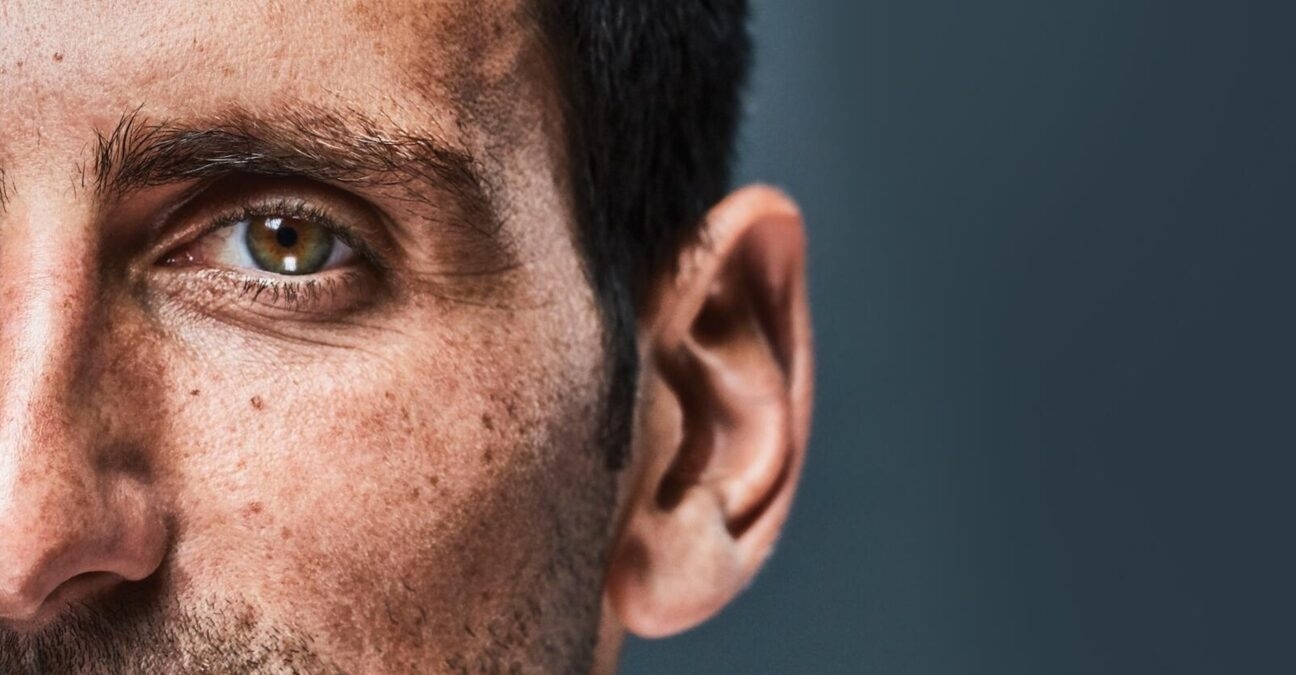 Novak Djokovic, the man behind the enigma | © Cassel
Novak Djokovic, the man behind the enigma | © Cassel
Mark, why did you write this book about Novak Djokovic?
It’s to give people a greater understanding of this guy. He’s won more Grand Slams than any other man in history. So, what happens? What makes him tick? How does he think? What have been the influences on him? How has his background shaped him?
Where does Djokovic’s mental ability to constantly overcome his own limits come from? Is it in his DNA, his history, his preparation?
I think on the mental side, his strength comes from the fact that he’s worked very, very hard on this. Lots of people say to him, “you were born with this“. But actually he dedicates as much time, as much effort working on his mind as working on his body.
Novak has put as much work into that as he has into the technical stuff on his body. I think it was his dad who said 95 percent of tennis is in the mind.
If he goes to the practice courts of a professional tournament, everyone can hit a forehand, everyone can hit a backhand. Everyone can hit a serve. So the thing that separates you is in your mind. So if you’ve got a stronger mind, you’re going to win more Grand Slams than anyone else.
You said he wasn't born with it and he works a lot on it. Yet you tell stories in the book of Novak being a child and impressing his first coaches by his mindset. So there's something in him that is special in terms of setting himself up as a future champion, right?
Yes. So even when Novak was a child with his first coach, he didn’t just turn up to the court with a racquet. Novak turned up with a racquet, and he had a towel and a water bottle. He was prepared and ready to go. So I think, you know, he’s now 37. He’s pretty much been doing this since the age of five or six, when he was first on the court. Obviously he’s picked that up as time has gone on.
Out of all the players who’ve ever played tennis, Novak has been the most dedicated, says he’s put more into his preparations, more into his tennis than any other athletes. I spoke to one of his friends who said, you know, the whole time he’s constantly asking himself a question, ‘How will this help my tennis?’
Before he does something small or something medium or something big in his life, that’s the question that he’s asked. If Novak thinks something is not going to help his tennis, then he’s not going to do it.
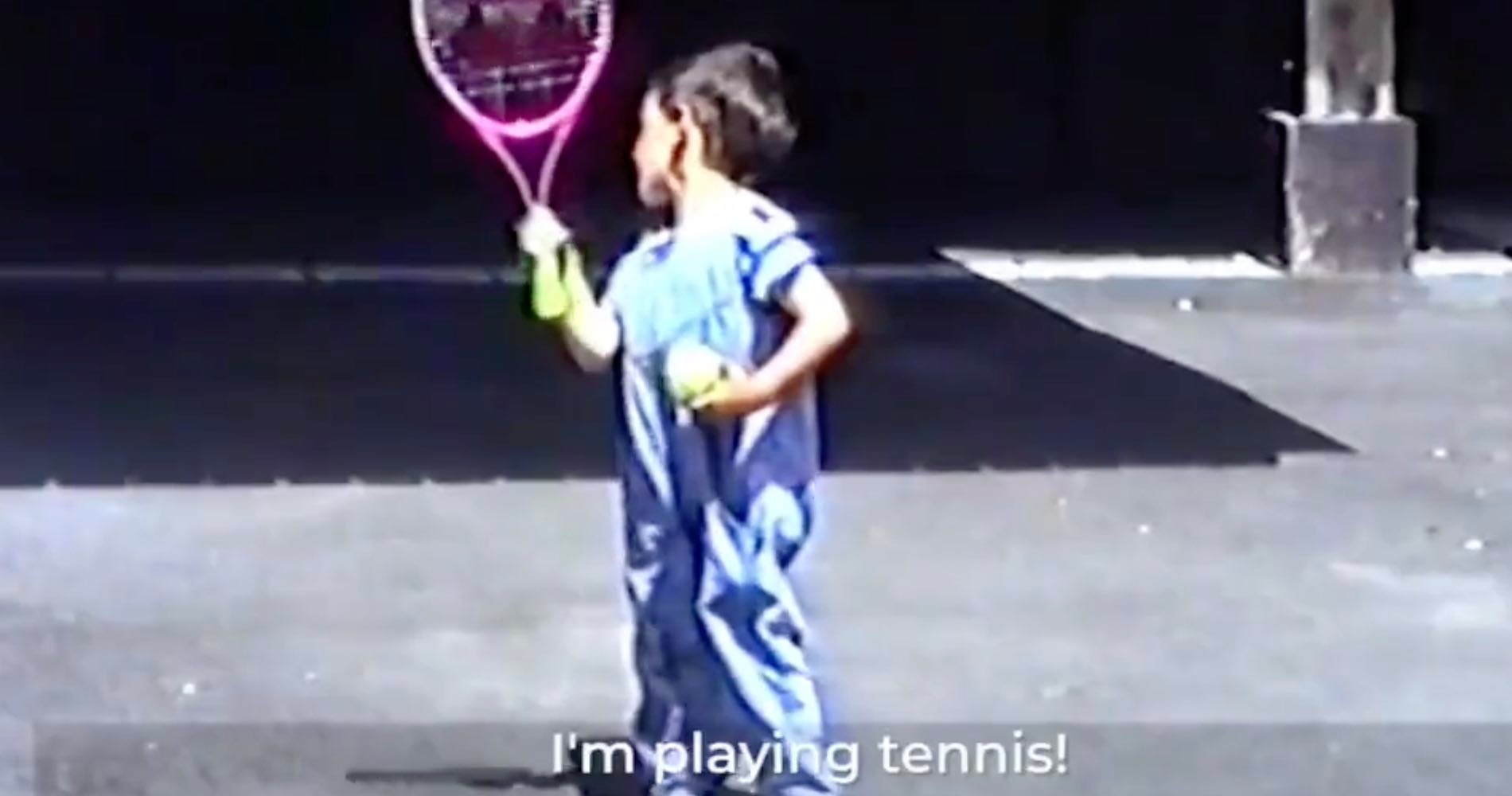
I feel like Djokovic has such a fascinating mind. Probably the most original mind, certainly in tennis and maybe across all sports.
Mark Hodgkinson
What do we know about what Djokovic is doing in terms of mental work?
So Novak has worked with psychologists in the past. I think that one of the more interesting things about Novak on court is the fact that he doesn’t think it’s useful to say fear doesn’t exist and that, as an athlete, you shouldn’t feel fear. He thinks it’s more useful to actually acknowledge that you’ve got those feelings on the court and then try to reset.
He’s also spoken about the fact that strong emotions can come out. And again, that’s fine. If you sort of think you can only be positive on court, actually, that’s going to work against you.
Is Djokovic the strongest player, mentally, on Tour?
I think, if you look at the history of tennis, Novak has got that sort of amazing technical ability. And he works on his body. But I think it’s the mind that really makes him stand out.
That was one of the reasons I wanted to write this book. I feel like he has such a fascinating mind. Probably the most original mind, certainly in tennis and maybe across all sports.
What do you mean by original?
Original in the fact that Novak is always very happy to do things differently. I think if for a long time people have done things in a certain way, I think Novak thinks, ‘Okay, if I find a different way and if that works for me, I’m going to do that.’
He’s very happy to do that. Even if at certain times people have commented on that or even criticised him, that hasn’t stopped him. I think he’s realised that doing things in a different way has been very successful for him.
You mention in the book an event in Novak’s childhood that has shaped him. What was this, and how did it influence his career?
As part of the research for my book, I went to Belgrade for a few days. I managed to get into the bunker where Novak and his family sheltered in 1999 during the NATO bombings.
To get in, they had to walk through two thick steel doors. It was very dark. I guess it’s the kind of place that people don’t go too often now and I don’t think it’s changed very much since Novak was down there, but it was very cold and quite an eerie place to go to.
I think for Novak, it’s not something that he’s going to forget. All those lives, emotions and sensations that he felt when he was down there had a huge effect on him. You know, it’s not something you’re going to forget.
That episode definitely shapes him. For a few years, he felt angry about it. He was 11 when it started. For many nights he was down there with his family. But I think as time went on, he realised that it wasn’t helpful for him to stay angry. So I think he reached a point where he felt like he could forgive, he could forgive all the people who decided to bomb Serbia and bomb Belgrade.
I think that sort of change of mindset has been helpful for him. That sort of switch from anger to forgiveness has been an important moment for him.
How does this help Djokovic on the tennis court?
I spoke to Chris Evert, and she’s had a few conversations with Novak over the years. She said that if you’re in the fifth set of the Wimbledon final, you’re 15-40, 4-5 down, it feels like a very stressful moment. Then if you think back to what he’s been through previously in his life, what happens on a tennis court, it’s pretty minor.
She said that you know that’s obviously shaped his mindset and shaped how he thinks on court. Of course he wants to win more Grand Slams. Of course he wants to do well. But I think at the same time he’s been through so much already that by comparison it’s not so important.
He’s worked on his mental strength throughout his adult life
Mark Hodgkinson
What about Djokovic’s deportation from Australia. How did that influence him?
In 2022 Novak arrived in Melbourne to play the Australian Open. But he ends up, because he wasn’t vaccinated, in essentially a severe detention centre in Melbourne, for a total of four or five days.
It was a massive story at the time. For a period of maybe 48 hours, it was the biggest story in the world. It was everywhere. All news bulletins, newspapers, radio, it was literally everywhere. There was massive scrutiny on Novak and all the decisions that he’s made in his life as health and his personal life and his professional life.
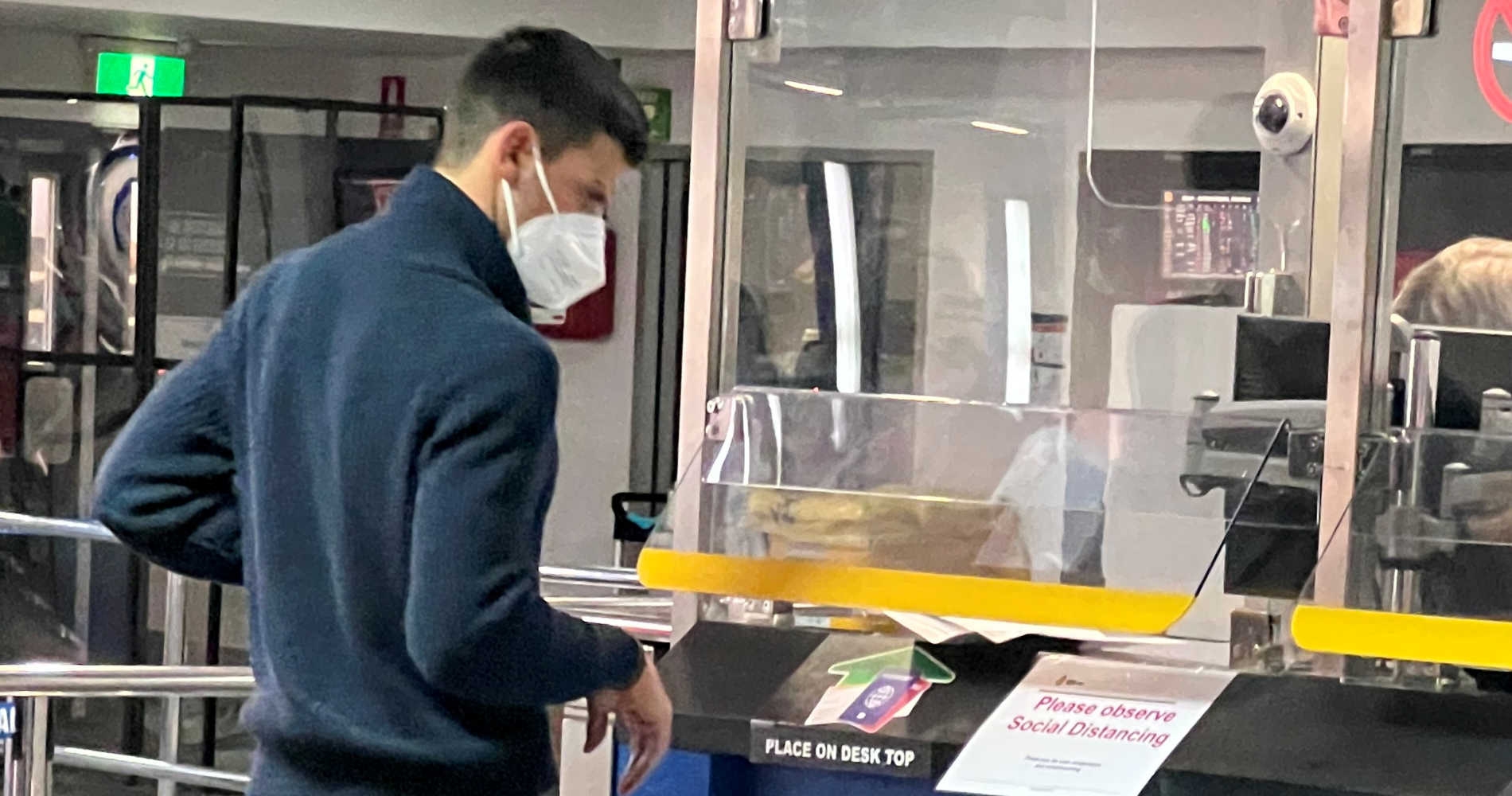
Why didn't it destroy him?
I think it’s because of his mental strength. He’s been through worse as a child. He went through worse in 1999 when NATO bombed Belgrade. So I think he had that strength. He’s worked on his mental strength throughout his adult life.
He also had one of his friends who was in touch with when he was in there. He said ‘use this time as a sort of a period to learn’. And so I think he almost used it as sort of a period to reflect on where he was and what had been happening.
Talking to some people around him, he’s actually emerged from the episode with a kind of a stronger mindset. Through that, he’s become a better player. It sounds strange, but in some ways he’s pushed on from there and become a better athlete.
So I think in your book, you identified at least three moments where Novak's career could end.
Yeah. So I think even before it started, it’s when he was a child. It was a massive financial struggle for his parents. So they didn’t have a huge amount of money to pay for his efforts, his tennis coaching, and for him to travel to the tournaments. And I think what you have to understand is, you know, after the war ended in Yugoslavia, I think that there wasn’t much money around.
It was difficult for sponsors. So international companies were probably reluctant to spend money on a Serbian athlete. So, you know, with any tennis champion who gets to the top. It’s a hard journey. But I think particularly with Novak, it makes it even more extraordinary. I think the fact is he’s risen to the top.
He went through him and his family went through so much. And I think there were moments when, you know, his family thought, can we carry on? And, you know, they had to on a couple of occasions, his dad had to borrow money from loan sharks and they had some very, very, very difficult moments. So, you know, I have a huge amount of respect for Novak and his parents – the fact that he’s now gone on to be the greatest player of all time.
So, just what was the situation? Was Novak a teenager who was good at tennis internationally already?
If I think even before that, I mean, he went to a tennis academy in Munich at the age of 12. And I think it was a big struggle, I think, for his parents. It’s a lot of money for him to go there from the age of 12, I think, you know, as he gets better and you have to spend more money to travel to events, it’s, you know, it’s an expensive sport.
And I think for his parents, it was very, very tough. So it’s amazing, it’s incredible what they did as well as what Novak has done.
It was a huge amount of financial stress on Novak’s parents
Mark Hodgkinson
So the point was, he was in Munich and his parents were about to call him back?
As far as I understand, I don’t think that was the case. I think it was certainly from the age of when Novak was about seven, from then onwards, I think they then thought, ‘OK, we’ve got a real chance.’
And Novak is a very talented player. There’s a chance for him to make it as, you know, as an athlete. I mean, even from that age, his dad was telling people in Belgrade, ‘my son is going to be the greatest ever‘. And I think at the time people were laughing at Novak’s dad.
Even with that, even without faith and that confidence and what Novak was going to do, I think if he simply didn’t have the money to pay for coaching and rackets and balls and travel and tournament, it would have been very, very hard.
But somehow, somehow they made it work. They had, on occasion, borrowed money from loan sharks. And they were, you know, paying a huge amount of money. And it was stressful. It was a huge amount of financial stress on Novak’s parents. So it is an incredible story, right?
You know, if you think about him, the guy’s won more Grand Slams than any other man.
When he was 16/17 alone on the lower tour, totally alone on his own, was this one of those fragile periods?
Yes, I think so. You know, I think in the beginning I mean, when he arrived at a tournament and he said that he’s from Serbia, some people thought he said Siberia. But, others were maybe less friendly to him because of what had happened.
And so I think on top of the financial hardship for him, I think all the other stuff that was going on as well was difficult.
Very few people know that after he won his first slam in 2008 and before he became the GOAT in 2011, he had very dark moments?
Yeah. Yes. That’s correct. So he was in Paris in 2010. He lost to a young Melzer and it was a defeat that hit him very hard, from two sets up. Talking to people around him, he went through a very, very dark time.
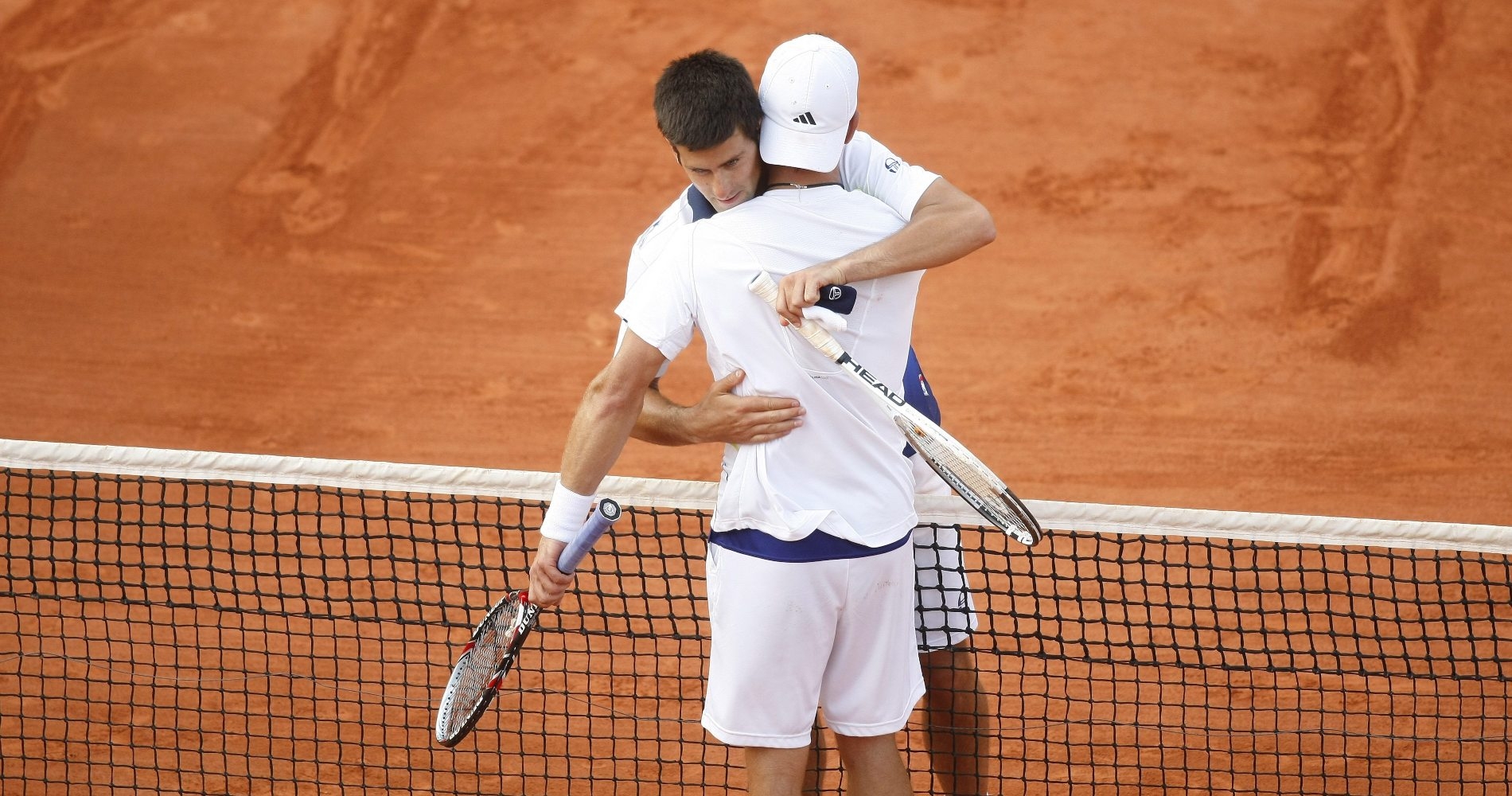
He was upset. He was in tears. And I think he questioned whether he actually wants to carry on. And so it’s incredible. Now if you look at what he’s achieved since 14 years ago and all the Grand Slams since then. But I suppose it’s kind of normal as an athlete to have those kind of moments where you question yourself and you sort of say, is this something I want to carry on doing?
You know, you have to remember, for lots of his career, he was playing at the same time as Roger Federer and Rafael Nadal. So I think it was a moment where he thought, actually: ‘what? So what do I want to accomplish and what can I accomplish?’ And it kind of resets. And since then, you know, he then went on to have an incredible year in 2011, he won three more Grand Slams. He became world No 1 for the first time. And so I think the fact he survived at that moment is a great lesson for all his supporters and people who follow tennis as well.
IN 2018, he said to his support team: “I’m done. This is it, I’m stopping here”.
Mark Hodgkinson
Did he feel, in 2010, that he could not match the level of those two ahead of him?
I think Novak obviously made a big change in 2010, and it was with his diet. And so he changed the course with the gluten. That was the kind of yeah, the main thing he changed in terms of what he was eating and that had a massive effect on him, on his body and on his mind.
And also that was the year that Serbia won the Davis Cup, in 2010. So I think then in 2011, he sort of came in with a new diet. He felt sort of physically stronger in matches, which then translates into mental strength. And I think he sort of also had that sort of feeling of winning the Davis Cup with his teammates, doing that for the first time for his country, I think it was a significant factor.
It was 2018 when Novak went from being a Grand Slam winner and an incredible player in 2015/2016 to then having his struggles. Is it true that he was about to stop then? How did he overcome that?
In 2018, Novak had won 12 Grand Slams. By almost any player’s standards, that’s an incredible career. But obviously if you look at what he’s done since then, the last six years, he was, you know, at half of what he’s accomplished. But in 2018 he was struggling on court.
He had some problems with his elbow and he had a run of bad defeats. And he said to his support team ‘I’m done. This is it, I’m stopping here’. And he told his agents, his sponsors and team that it was all over.
Just to be clear, he wasn’t just thinking about it. He said it was over?
Yes. Novak said to his team ‘I’m done. My career is over.’ Then he then went on holiday with his wife and his son. And I think for the first few days, his wife went to the tennis courts, and I think she found an old ball machine and she was hitting some balls and she was having fun on the court.
I think the first couple of days he wasn’t interested. And then on day three or day four, he suddenly appeared. He wasn’t wearing his tennis clothes. He was just wearing shorts, maybe flip flops and a t-shirt. And then suddenly he actually thought, ‘this is fun‘, you know, and got back into it.
But by the end of the holiday, he was turning up with a racket and proper shoes rather than flip flops.
And then it’s kind of remarkable what he won in that year (2018). He won Wimbledon. And, you know, any time winning Wimbledon is a great moment, a great occasion. But I think the Centre Court crowd sort of fully understood what he’d been through just three or four months before that.
It kind of makes the story even stronger.
_________________________
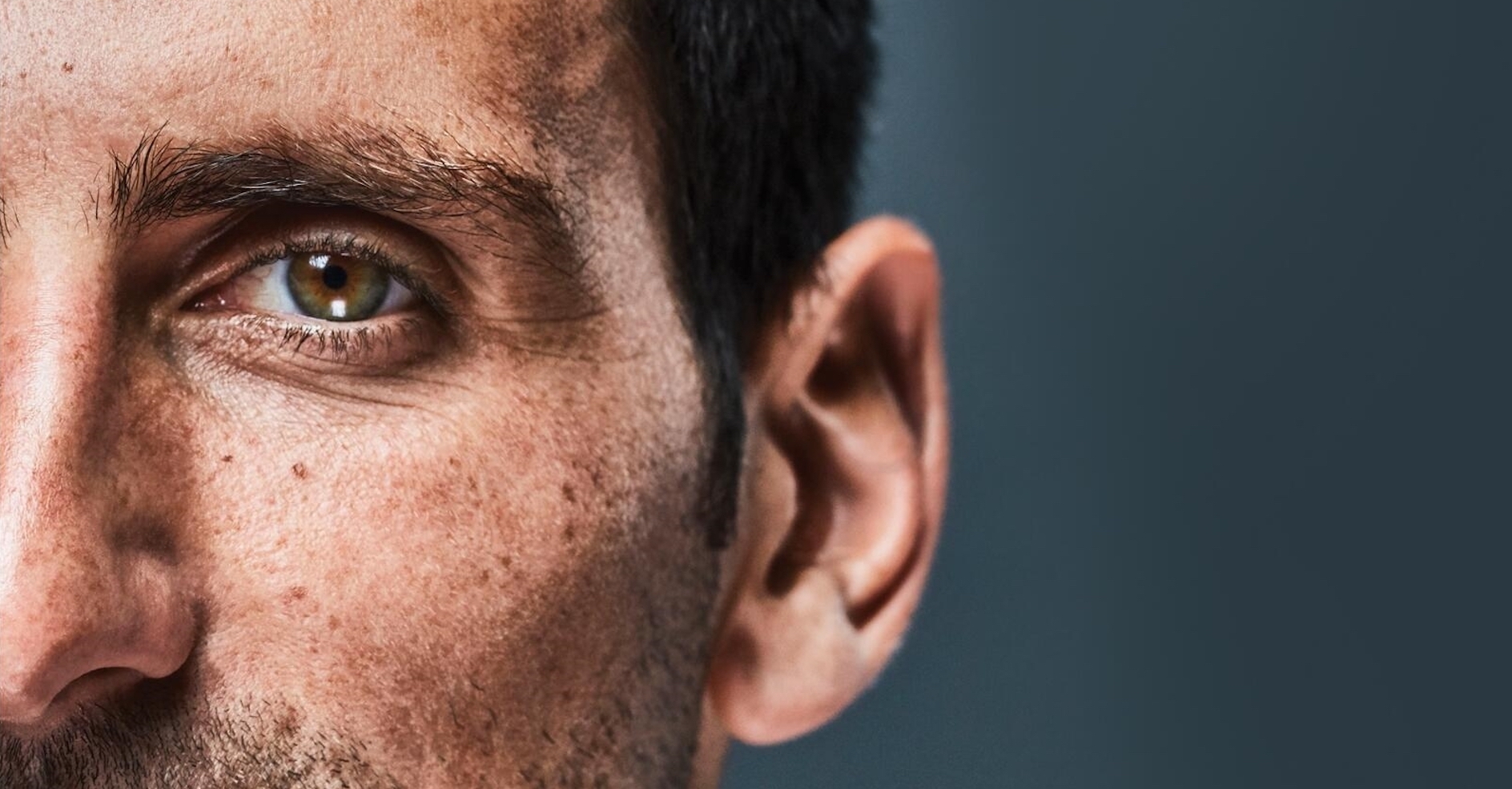
Mark Hodgkinson’s Searching for Novak is available online now, and at bookstores near you.
